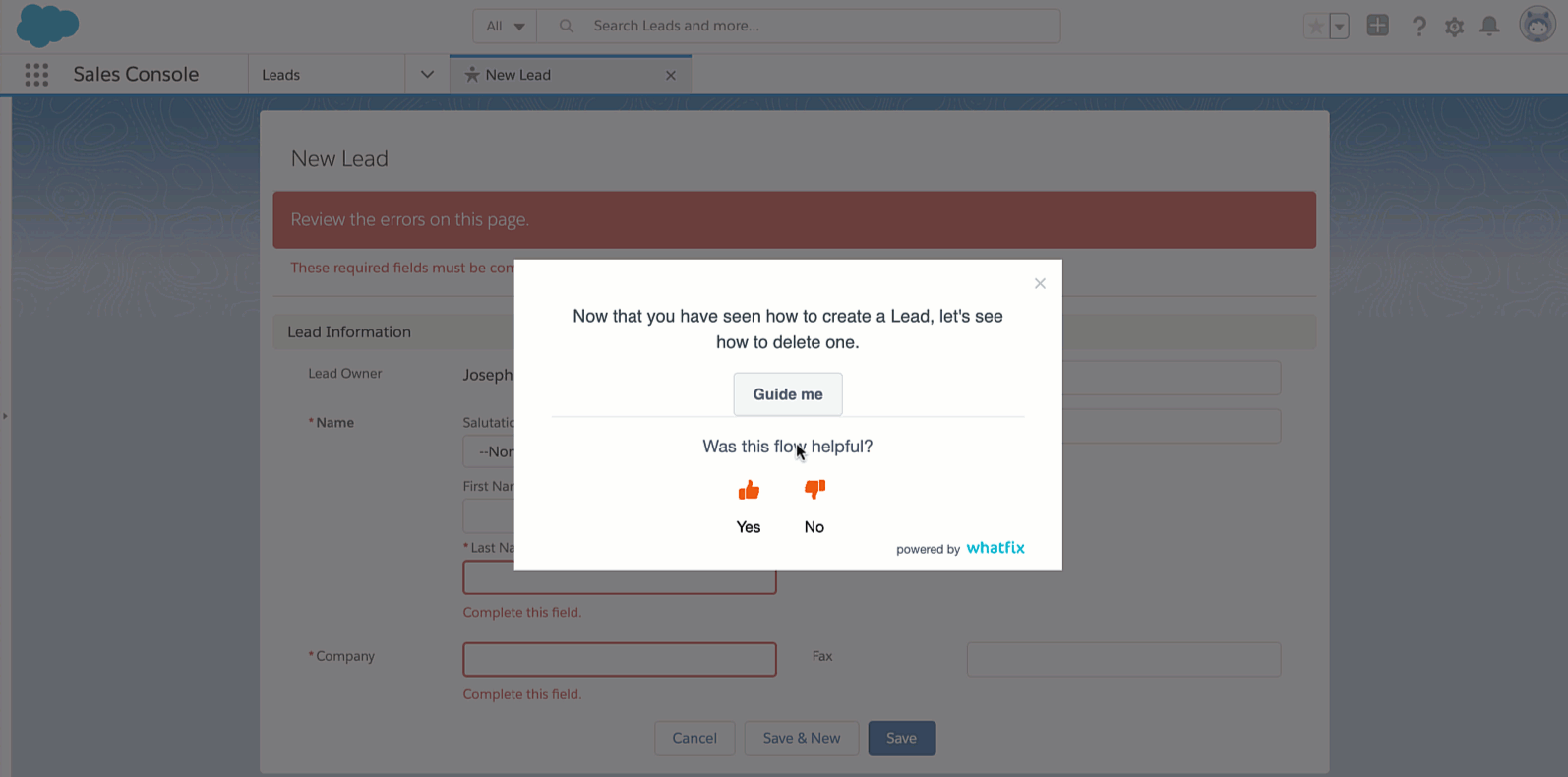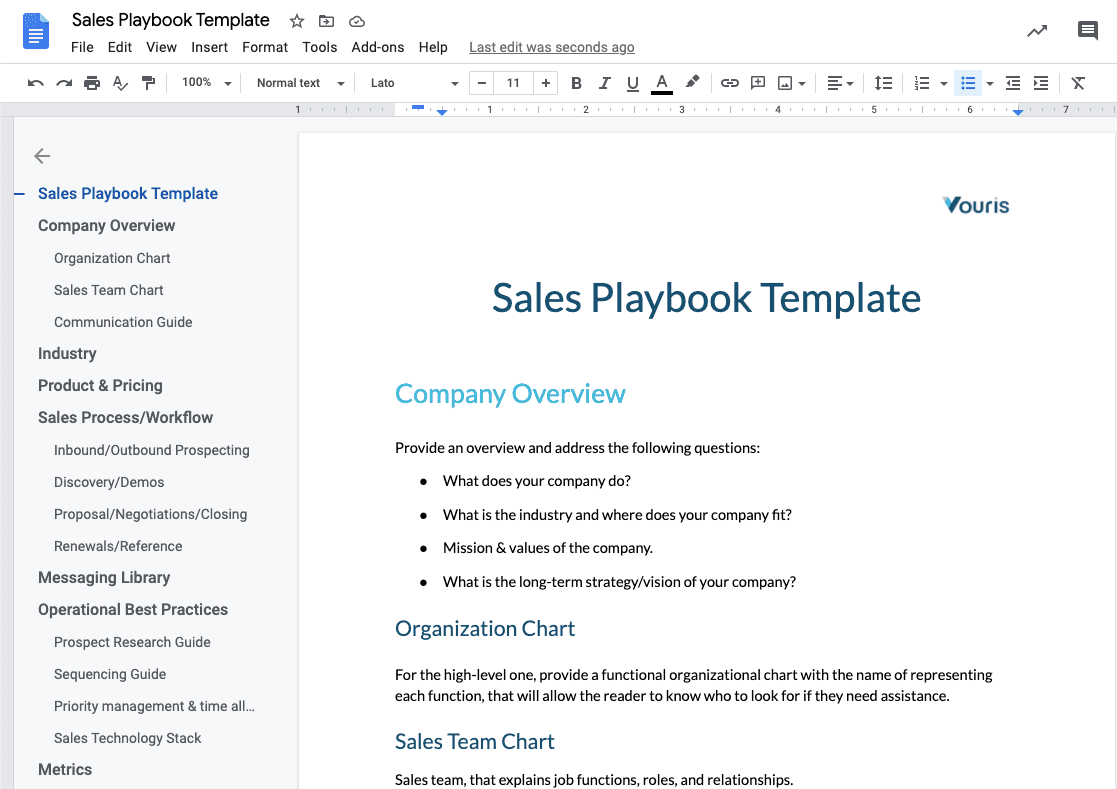Sales Leadership: 8 Skills to You Need to Lead Sales Teams (2024)
- Published:
- Updated: July 24, 2024


Even the best sales team can miss revenue goals without an effective leader. If you’re a sales leader who wants to succeed, or if you’re new to sales and want to become a future leader, you need to ensure that your leadership skills are top-notch through sales training.
While sales leadership is complicated and is often confused with sales management, we’ll break down the key differences, and how sales leaders are developed.
In this article, we’ll discuss everything there is to know about sales leadership, including best practices, attributes, habits, and core skills that all sales leaders must have leader successful enterprise sales teams.
What are the most important attributes and habits of sales leaders?
- Goal & KPI alignment
- Natural ability to coach and mentor younger reps
- Ability to hire the right salespeople
- Data-drive mentality
- Tech-savvy on critical sales software
- Listens to feedback from the sales team
- Has in-depth product knowledge
- Intuitively knows when to lead
What Is Sales Leadership?
Sales leaders are individuals within a company’s sales hierarchy that make strategic sales decisions to empower and guide the sales team. These leaders typically are a VP of sales, a sales director, or a chief revenue officer (CRO), and is accomplished through a mix of sales coaching, sales tools, sales strategy, and overall motivation that drives success.
As a sales leader, it’s your job to analyze the market and make decisions based on the data available. You must then pass your wisdom and experience to your sales team to develop their skills and motivate them toward success. Sales leaders must understand product fit, as well as the company vision, mission, and culture to become successful leaders.

Sales Leadership vs. Sales Management
It’s easy to confuse sales leadership with sales management. The two terms are often incorrectly used interchangeably. Leaders often have to manage, and managers have to lead, but these are two very different roles within an organization.
A sales leader is higher up on the company’s chain of command, and they oversee big-picture strategic ventures. It’s the sales leader that sets policy and dictates the actual sales strategy for the company.
A sales manager handles much of the day-to-day management of the sales team, including providing support, training, and hiring them in a way that adheres to the sales leader’s more precise vision.
Now that you know the difference between sales management and leadership let’s start discussing what makes a solid sales leader.
8 Most-Important Skills for Sales Leaders
Here are eight attributes, habits, and skill sets that make an effective sales leader in 2024.
1. Goal & KPI alignment
A sales leader must be able to set goals and KPIs that are challenging, obtainable, and align with a company’s overall goals. This requires attention to detail, as well as an understanding of sales forecasting, reporting, and company strategy.
For example, if your sales goal is to increase revenue in Q3 by 40%, then you need to set KPIs that will measure how close you are to achieving these goals. A KPI could be a certain amount of prospecting outreach, new leads, and closed deals needed to reach the desired goal.
2. Natural ability to coach and mentor younger sales reps
As a leader, you should be able to speak with your sales reps, outlining their individual goals and performance to help them go from where they are to where they need to be. But a good leader does this through inspiration, not fear and threats. Sales leaders must possess a natural ability to feed into the strengths of their team members and help them achieve greatness.
3. Ability to hire the right salespeople
While many sales leaders don’t do the actual hiring, they set the criteria for sales managers to follow when recruiting new sales talent and filling open positions. As a sales leader, you should know the kind of salespeople you want to hire, and then craft job descriptions that explicitly spell this out.
You also need to look at the hiring process as the acquisition of a team — not just disparate individuals. Personality types have a lot to do with how team members interact with each other and clients. For example, INFJ personalities are more introverted. While they’re great communicators and can build rapport with others easily, they are usually not very comfortable with high levels of social interaction.
4. Data-driven mentality
Sales leaders need great instincts, but they can’t rely solely on their gut feelings. Hard data must drive all sales-related decisions. Data is a clear window into the preferences and buying habits of your core audience, and the strategic decisions you make must take all of this information into account.
This includes customer behavior data, sales funnel data, social selling analytics, conversion rate, win rate, and more.
One essential quality of leading successful sales teams is providing them with the needed strategy or helping them develop it. For example, people working in sales often find it challenging to create an ideal customer profile, which sometimes leads to confusion among the team. At such a time, it would be the right decision for the leader to provide them with the ideal customer profile template.
5. Tech-savvy on critical sales software
The sales world is constantly developing new and exciting sales software to help their sales team be more organized and productive, as well as enable them to close more deals.
As a sales leader, you must stay current on the most significant advancements in the sales tech world. You don’t want to give your biggest competitors an undue advantage by failing to adopt new technologies that they’ll make good use of. You should constantly be looking for the next significant sales platforms, conducting demos, and learning all there is to know about the changes involved in the SaaS world.
Examples of sales software leaders should evaluate include:
- Goal management software
- Sales automation software
- Sales enablement software
- Interactive demo software
- Sales gamification software
- Sales training and onboarding software
- Sales analytics platforms
6. Listens to feedback from the sales team
Existing in an echo chamber doesn’t help anyone. While you may believe your strategy is solid in theory, it might not go as smoothly in practice. But since you’re not in the trenches, you can only learn this through feedback derived from your sales team.
Listen with an open mind to all of their feedback and consider their accounts when deciding whether it’s time to switch tactics and try something completely different. Their insight is one of your most valuable resources.
Examples of types of feedback to gather include:
- What are barriers to closing deals?
- Are you equipped with the knowledge to successfully use your sales tools and digital processes?
- How helpful was a specific sales coaching seminar?
- Are your sales goals obtainable?
- What type of content do you need to close more deals?

7. Has a high level of product knowledge
To be an effective sales leader, you must know the products your team is selling intimately. That means you should be well versed in their uses and any common problems customers have reported. This is all invaluable knowledge when it comes time to plan out your sales strategy. You should also pass that product knowledge on to your sales associates to communicate effectively with potential customers.
8. Intuitively knows when to lead
As a leader, you need to be able to tell when you’re needed and when you’re not. You don’t want to take an approach that’s too hands-on or hands-off. Instead, you should be able to look at the numbers and gauge whether direct intervention is necessary.
You don’t want to disrupt your sales team by unnecessarily micromanaging them, but in the same breath, you don’t want to give them total freedom and sit there watching as the entire sales plan crumbles around you.
Look out for some common warning signs and intervene when and if you’re needed.
How to Develop Your Salespeople Into Sales Leaders
So how do you develop your sales leadership skills? Here are six best practices to hone your leadership skills.
1. Provide continuous learning and development opportunities for your salespeople
It’s a leader’s job to inspire and educate their team. That’s why you should run regular sales seminars, passing on your knowledge and experience to the sales team. These workshops could involve roundtable discussions, role plays, and a question and answer session regarding your overall sales and marketing plan. This will also help you identify highly capable members that could be future leaders on your sales team.
2. Invest in a performance support system for your sales people
A performance support system provides your sales people with contextual help content and process documentation, at the moment of need. This helps your salespeople drive adoption of your processes and tools, as well as improve their output and productivity – all without the need for additional, instructor-led training or the need for support tickets.
With a performance support tool, sales leaders can empower their sales people with self-help interactive content such as in-app guidance, interactive walkthroughs, self-help wikis, smart tips, and more – all providing contextual resources to help solve problems an employee is facing, in the flow of work.

Whatfix is a digital adoption platform that enables salespeople to get the most out of the sales tools and digital processes they use daily with a no-code editor.

Whatfix also provides sales leaders with the data to understand how team members are engaging and adopting sales tools, features, and processes – as well as identify skill gaps and areas of need for new training sessions and help content.
3. Make your team’s goal and quote setting a collaborative effort
Your team should have some say in the goals you set for them. After all, they’re working hard to hit those numbers, and you should take their advice to heart regarding what’s feasible or not.
Before the start of every quarter, gather the entire sales team together and discuss their team goals. Discuss the KPIs needed to hit those goals and how realistic they might be
4. Infuse sales analytics throughout your sales organization
We’ve established that you need to use data as a sales leader to craft your plans effectively. But it would help if you also were infusing that data throughout the organization, using it to set realistic goals, shift strategy, and even hire new sales staff.
Numbers should back every decision that’s made within your sales organization. Take the emotion out of the game and structure your plans around the facts.
5. Document and share best sales practices and processes
Create a list of your sales best practices and processes and compile them in an employee sales training handbook. This ensures that every member of your sales team understands the expectations and tactics approved within your organization and provides them with a reference point when needed.

You can also use this sales documentation to hold your sales team accountable for the sales processes you’ve laid out. No one will ever be able to blame ignorance for any failure.
6. Empower individual salespeople to close and finalize their own deals
While you should always be a resource your sales team can turn to when needed, you don’t want to become a crutch that they lean on.
Instead, use your sales leadership skills to empower them with confidence and the tools for success to help them close their own deals without having to bring you in to stick the landing. You have a lot on your plate, and you can’t be expected to close every deal for your team members.
By training them well and following the other tips in this guide, you should be able to put together an incredible team that can rise to the challenge and close sales without assistance.
With a digital adoption platform like Whatfix, sales organizations can provide in-app guidance and on-demand performance support to help turn your salespeople into sales leaders.
With Whatfix, build interactive walkthroughs, flows, smart tips, and task lists that overlay on your CRM and other sales software that provides contextual onboarding and support for your sale people to master their features and processes successfully.
Sales leaders can also embed a self-help wiki that includes a database of sales documentation and FAQs that sales people can use to find answers to frequently asked questions, allowing them to troubleshoot independently. With a Whatfix self-help wiki, you can directly link to videos, PDFs, slide decks, sales documentation in your Google Drive, external links, your LMS, and more.
Learn how to improve the productivity and efficiency of your sales team with Whatfix’s sales performance support platform now.
Thank you for subscribing!


